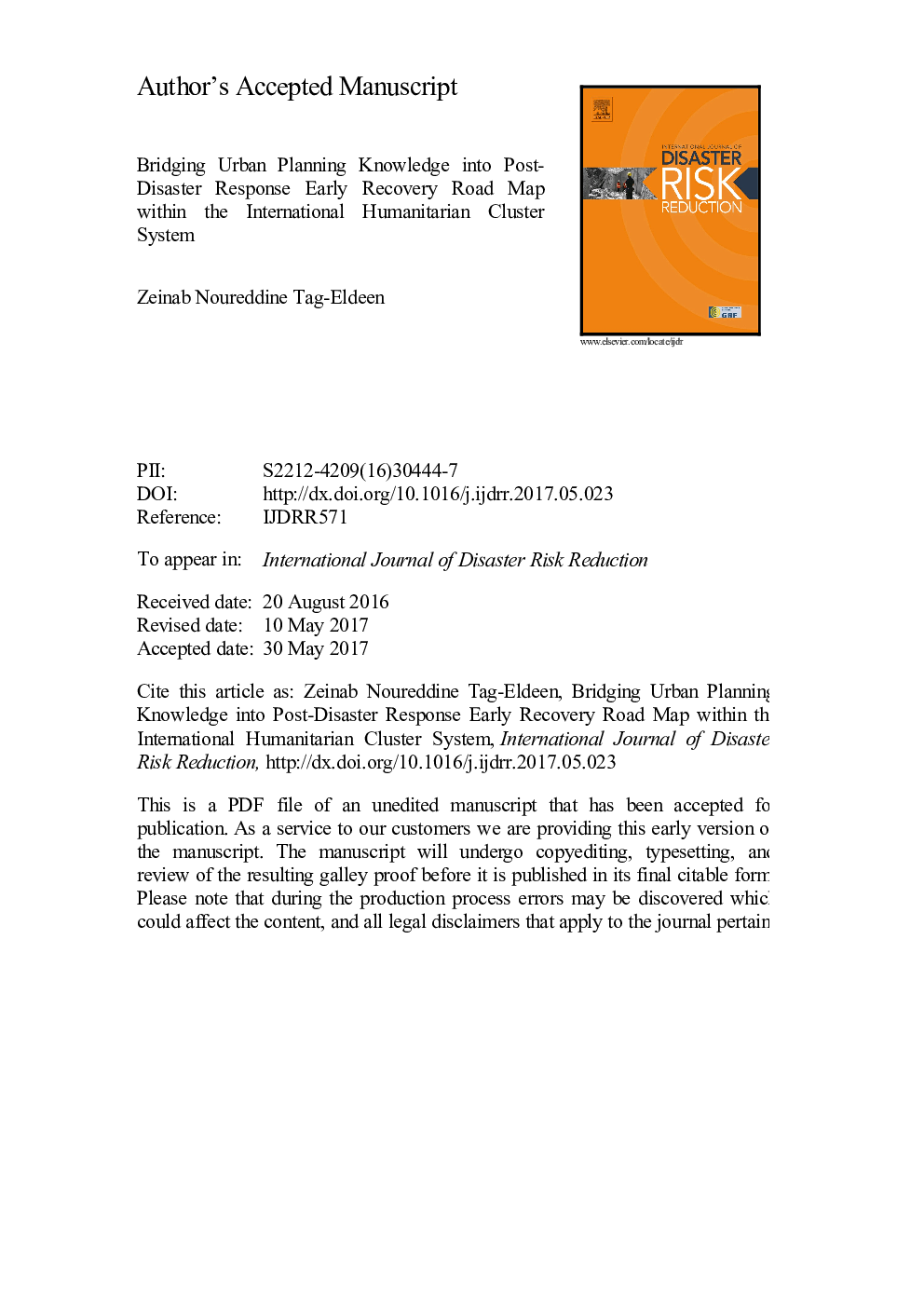| Article ID | Journal | Published Year | Pages | File Type |
|---|---|---|---|---|
| 5116046 | International Journal of Disaster Risk Reduction | 2017 | 24 Pages |
Abstract
Given the scale and the complexity of urban disaster, significant efforts have been intensified by the International Humanitarian Community over the last decade to develop an effective operational mechanism in post-disaster and conflict response, to create synergies between short-term relief measures and long-term development, and to maximize the efficient use of limited resources. In spite of the positive impact of these efforts on humanitarian response, the historical separation between relief, recovery and development continues with significant practical implications on the effectiveness of humanitarian response programs, especially in urban disasters. This paper explores the viability of employing well-established planning knowledge to provide systematic ways to integrate the sectoral response activities, especially in complex urban settings, that help link the humanitarian response with recovery and development. A conceptual and operational framework named Early Recovery Road Map (ERRoMap) using urban planning knowledge is suggested as a new dimension to be added to the traditional role of the Global Cluster for Early Recovery (GCER) in the International Humanitarian Cluster System. The ERRoMap employs the three conceptualized terms of planning efforts: process, context, and outcome to re-organize the function of a 'City' under time-pressure. The process of making an ERRoMap is aimed to bridge the emergency response with recovery through organizing facts about disaster impacts in urban settings; identify essential areas for early recovery, join-up efforts of humanitarian actors and facilitate their communications with development actors.
Keywords
Related Topics
Physical Sciences and Engineering
Earth and Planetary Sciences
Geophysics
Authors
Zeinab Noureddine Tag-Eldeen,
